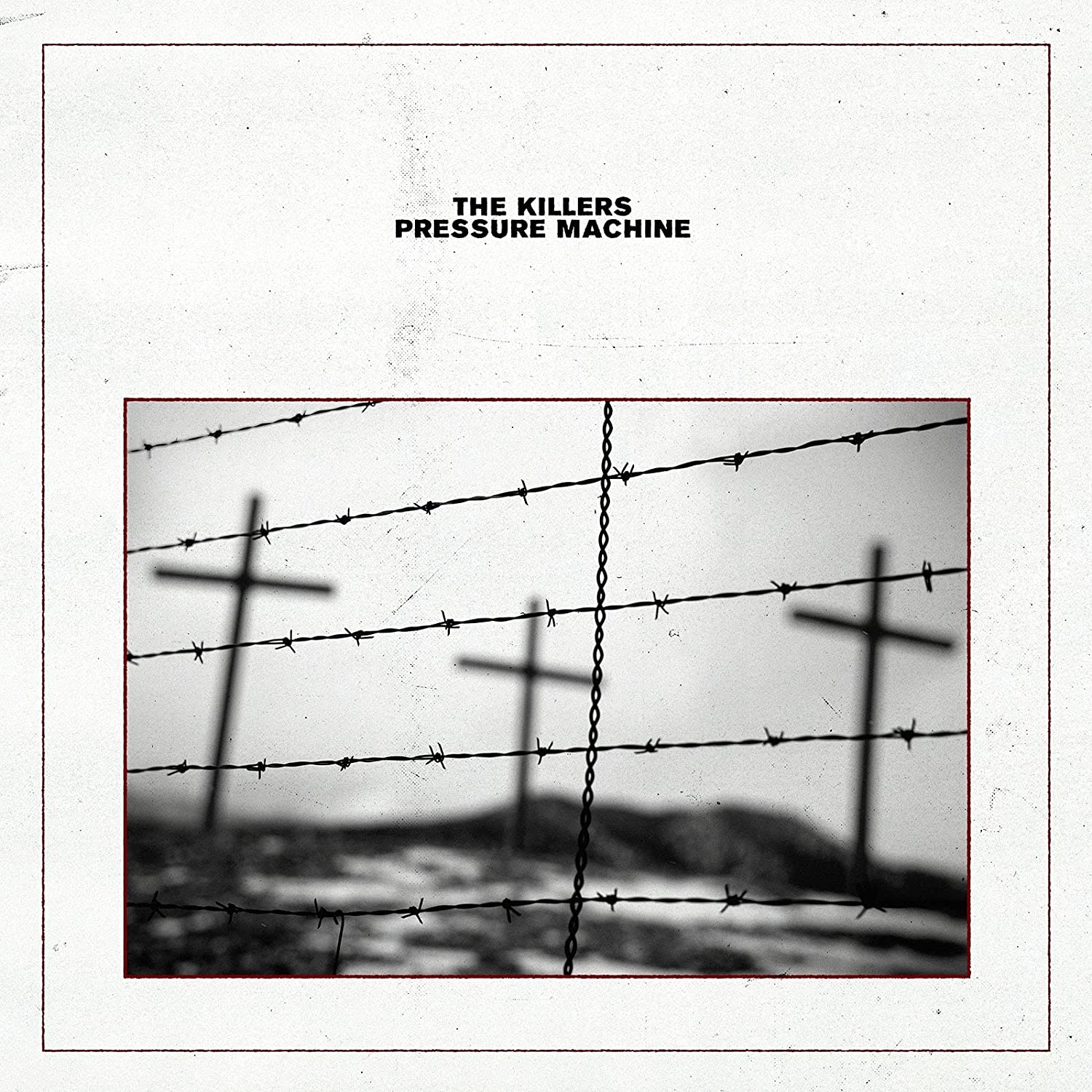Pressure Machine, The Killers’ audacious new concept album, is so foreboding and grim — how foreboding and grim is it? — that Brandon Flowers may soon receive a cease-and-desist letter from Utah’s department of tourism.
The band’s seventh studio LP (and second in 12 months) is a jarring departure from the maximalized arena-rock of 2020’s Imploding The Mirage, instead painting a grayscale portrait of small-town survival, specifically hinging on Flowers’ adolescent home of Nephi, Utah.
It’s part country-rock retrospective, part Coen Brothers thriller and part This American Life, as The Killers commissioned an audio engineer — from NPR no less! — to record real-life residents of the northwestern valley town speaking candidly about their melan-bucolic lives.
And these narratives, which guide the 11-track album, are no rosy postcards: tales of suicide by train (“Quiet Town”), opiod addiction (“In Another Life”), domestic abuse (“Desperate Things”) and a particularly heartrending anecdote about a girl laying over her horse, crying over its broken leg, knowing what it means (“Runaway Horses”).
Human resilience, or at least contentment, is acknowledged on the closing track “The Getting By,” as a woman is heard explaining the joys of country living — her sons ride dirt bikes across the street, her other boy hunts elk. “The mountains are just in our backyard, that’s the nice part about it,” she says.
In terms of emotional intensity, Pressure Machine is as raw and affecting as any Killers project to date — an effort that mercifully moves beyond their worship of Bruce Springsteen. The Boss still seeps through in moments, however, like in the blazing Nebraska-era harmonica of “Quiet Town, downcast vocal cadence of “Terrible Things” and characterization of “Desperate Things,” where Flowers adopts the persona of a police officer, not unlike Bruce’s “Highway Patrolman.”
But the swelling climax of opener “West Hills” feels fresh and original, bolstered by the return of co-founding guitarist Dave Keuning, who did not play on Mirage. His crunchy solo on “Cody” is particularly strong. The record also receives a small jolt from indie star Phoebe Bridgers, who contributes a familiarly ethereal backing vocal for “Runaway Horses.”
Though the album suffers moments of disjointment, as a few songs’ sonic relation to their narrators’ spoken-word introductions appear forcibly wedged together. “Quiet Town” really suffers here, as its chilling opening — of a man discussing how many locals are struck dead on the railroad each year — bleeds into a balmy pop-rock melody conjuring Hall and Oates.
Pressure Machine is, in totality, a commendable and genuinely surprising big swing, which mostly connects. It’s a project that proves The Killers won’t yet settle for festival-headlining rock legacy status. Though it will be interesting to see if the average Killers fan will grant this album the closer listening it deserves — or will they just speed on past the “barbed wire town of barbed wire dreams.”





